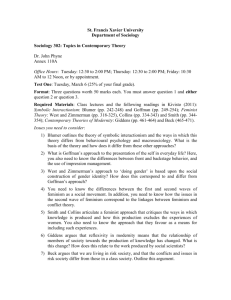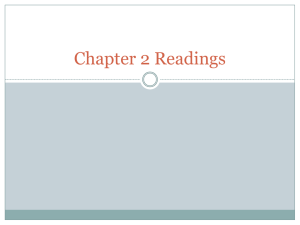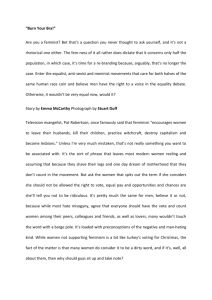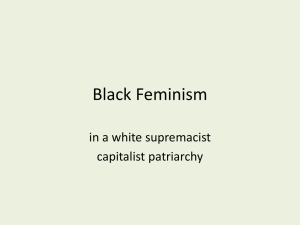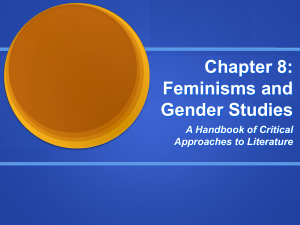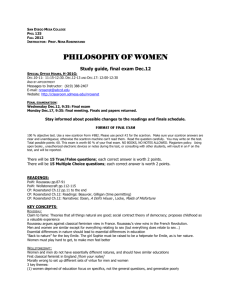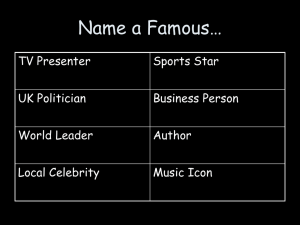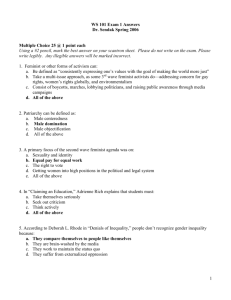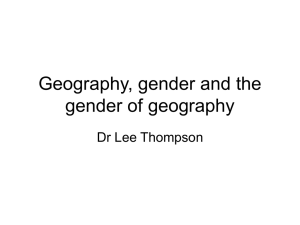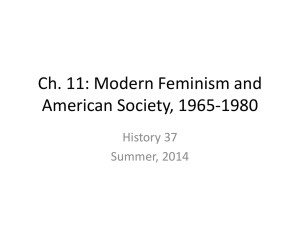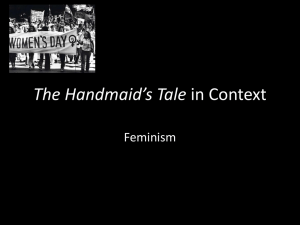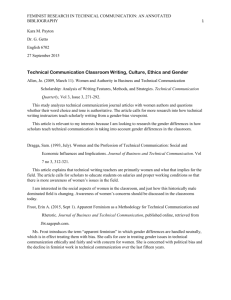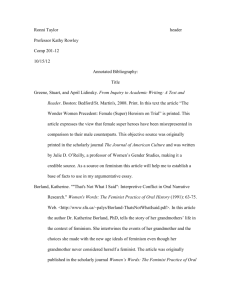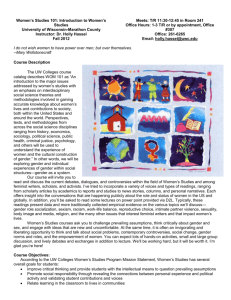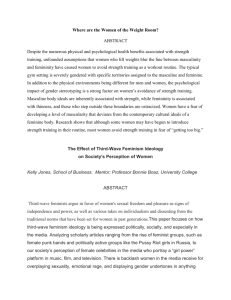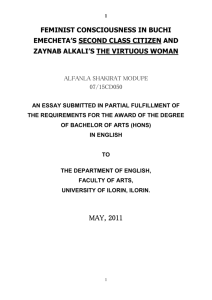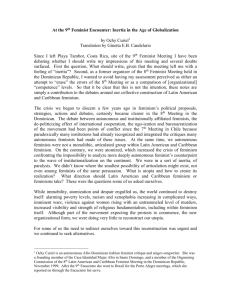politics buried
advertisement
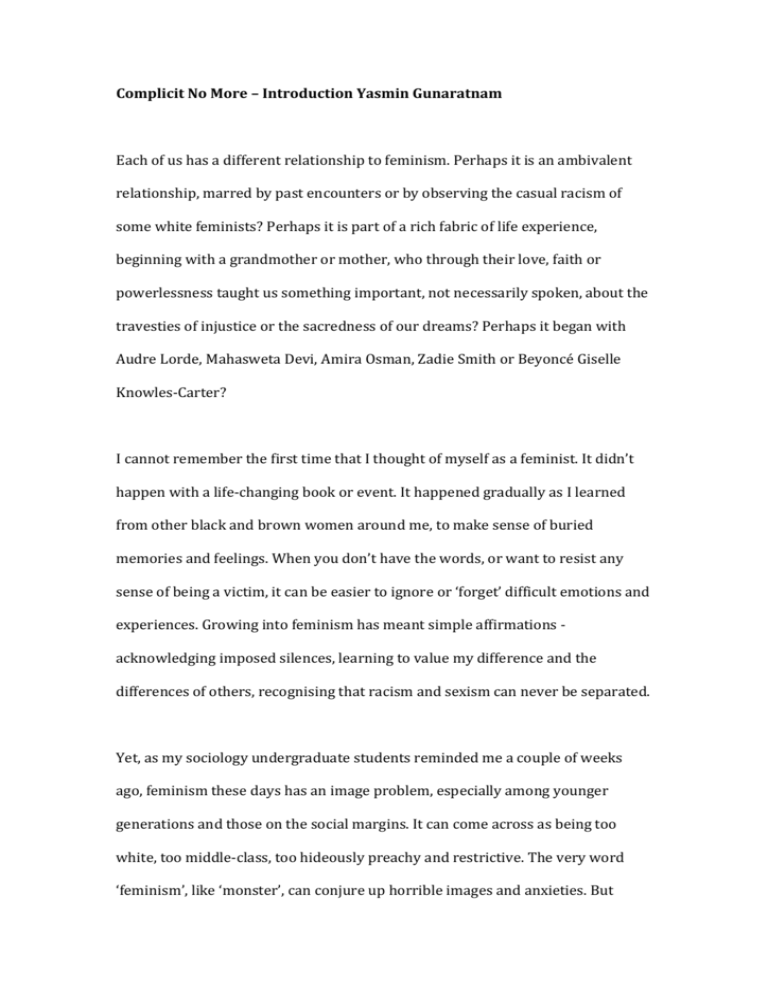
Complicit No More – Introduction Yasmin Gunaratnam Each of us has a different relationship to feminism. Perhaps it is an ambivalent relationship, marred by past encounters or by observing the casual racism of some white feminists? Perhaps it is part of a rich fabric of life experience, beginning with a grandmother or mother, who through their love, faith or powerlessness taught us something important, not necessarily spoken, about the travesties of injustice or the sacredness of our dreams? Perhaps it began with Audre Lorde, Mahasweta Devi, Amira Osman, Zadie Smith or Beyoncé Giselle Knowles-Carter? I cannot remember the first time that I thought of myself as a feminist. It didn’t happen with a life-changing book or event. It happened gradually as I learned from other black and brown women around me, to make sense of buried memories and feelings. When you don’t have the words, or want to resist any sense of being a victim, it can be easier to ignore or ‘forget’ difficult emotions and experiences. Growing into feminism has meant simple affirmations acknowledging imposed silences, learning to value my difference and the differences of others, recognising that racism and sexism can never be separated. Yet, as my sociology undergraduate students reminded me a couple of weeks ago, feminism these days has an image problem, especially among younger generations and those on the social margins. It can come across as being too white, too middle-class, too hideously preachy and restrictive. The very word ‘feminism’, like ‘monster’, can conjure up horrible images and anxieties. But alongside this aversion to anything ‘feminist’, feminism is also very much a part of our everyday worlds. Think of Beyonce’s recent homage to Chimamanda Ngozi Adichie’s Tedx talk ‘We should all be feminists’ in the track ***Flawless, or how ‘intersectionality’ has become part of fluent discussions by columnists and those in the blogosphere - and nearly two decades after it was first theorized by the law scholar Kimberlé Chrenshaw. This ‘double entanglement’ of feminism being simultaneously rubbished and reappropriated, has come to typify a Western postfeminist sensibility, according to the cultural theorist Angela McRobbie. Although the term postfeminism can mean different things, it most often signals a break from the second wave feminist struggles of the 1970s and 80s, which involved critical attention to the interrelating effects of racism, capitalism and imperialism. Postfeminism has been seen as emptying feminism of its intersectional politics, replacing radical concerns with race, class, sexuality and geo-politics, with a ‘Rampant Rabbit’ style neoliberal consumerism. We can gain our empowerment and liberation through the market; through hair extensions, manicures and the latest designer clothes. It’s all about me. On-going discussions about what feminism is and what it means to include a diversity of experiences, continues to be central to feminist projects. Although there is nothing new about these lively and difficult conversations, the recent sensationalizing of feminist ‘in-fighting’ acts as a new sign for the ‘trouble’ and disturbance that questions of racism and transphobia are causing for feminist politics . As Gail Lewis has pointed out, Infighting is either a sign of collective suicide or of a robust reaching out toward greater understanding and inclusion. The distinction turns on whether the aim is to foreclose difference of opinion and assimilate it into the sameness of a sterile and phantasied "we", or to foster a desire for connection through coalition across difference. Deciding which way to go is always difficult but nevertheless necessary, to challenge feminism's complicity with racism. While so-called ‘infighting’ has a long history, we are not alone in noticing how often latter-day discussions can end up in a political cul-de-sac, especially at these times of cyber critique. By always responding to the racism/sexism/homo and transphobia of others we can re-center dominant voices. This is a version of what Chico Moreno has dubbed ‘reactive anti-racism’. For Moreno, there is a certain doleful predictability to the critique of racism from queer writers and those of colour. It goes something like this, …point out something is racist, list how that thing is racist/appropriative, blame the white people responsible, then end the piece of writing feeling righteous and vindicated. Usually, people of color are portrayed as immune from blame and the category “white” is rendered flat and monolithic. It is exactly at such points of difficulty and ambivalence that contributors to our ‘Complicit No More’ series intervene. At its root, the word complicity balances on a knife-edge. It means both the fact or condition of being ‘involved’ and being allied with something that is morally wrong. In the articles we will post over the next two weeks our writers will discuss such matters as ‘honour’ violence and body image. These are topics that have been framed by Eurocentrism but which are also a part of intra-oppressions: how we relate to our selves, to each other and our communities. In her Tedx talk, Chimamanda Ngozi Adichie has reminded us of the creeping banality through which these intra-oppressions stunt bodies and minds, We teach girls shame. Close your legs, cover yourself, we make them feel as though being born female they're already guilty of something. And so, girls grow up to be women who cannot say they have desire. They grow up to be women who silence themselves. They grow up to be women who cannot say what they truly think. And they grow up-and this is the worst thing we do to girls - they grow up to be women who have turned pretense into an art form. In creating a forum to discuss gendered racisms, ‘Complicit No More’ also aims to encourage a more generous and ‘conscientious’ feminist dialogue. We are not alone in these efforts. Those such as Black Girl Dangerous and The Body Narratives collective are also inventing new spaces that are attentive to how cross-cutting complicities are a crucial part of our vulnerabilities as much as they can be a masochistic impediment to change. Jezebel Delilah X, of Black Girl Dangerous, has written a deeply felt account of what such generosity can look like. Delilah X, a black queer nerdy feminist, describes how discovering the work of writers such as Audre Lorde, bell hooks, Dorothy Allison, June Jordon, Patricia Hill Collins, Gloria Anzaldua, Gloria Naylor and Octavia Butler, gifted her ‘with an intellectualized compassion for the kids who bullied me, and a critical understanding of my own fear, rage, and selfloathing’. She writes, I was angry about the way I was treated by my peers, and if it weren’t for these writers being introduced to me at such an early age, if it wasn’t for their radical vulnerability and openness, their willingness to take risk and put themselves out there and demand a revolutionary shift in our cultural perception, I might have grown up to hate other Black people. I might have grown up to hate myself. The articles in our feminism series do not make any claims to solve the many problems that confront today’s feminists of colour. They are small missives about real people, struggling to live life fully and well. Our writers invite you to help us think through how and where a critical attention to complicity might take us. Happy International Women’s Day.



